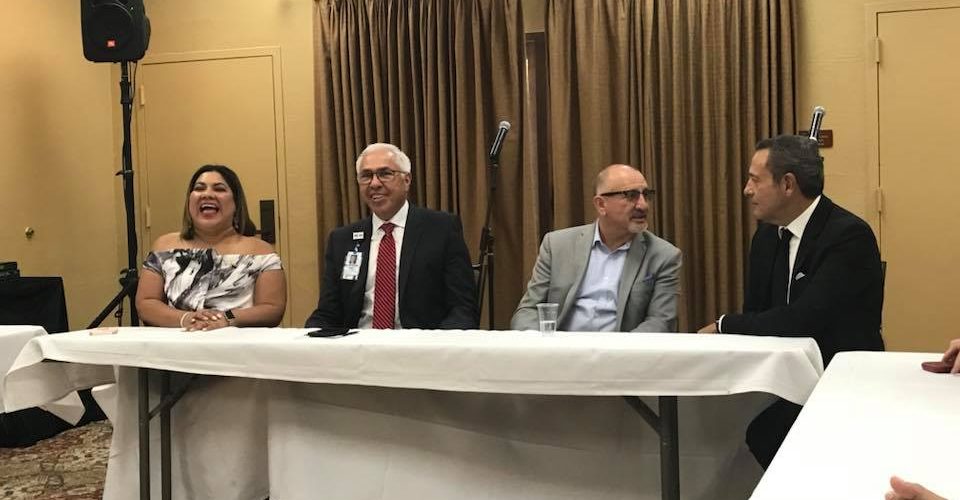Every year the Tucson Hispanic Chamber of Commerce gathers to review how their community is doing in the business world and what lies ahead for them.
This year, the central theme of the Tucson Hispanic Chamber Hispanic Market Outlook event was community engagement.
According to Pew Research Center, the Hispanic population accounts for 18 percent of the total United States population. However, Latino-owned businesses account for one out of five new businesses.
“Young entrepreneurs are disproportionately Hispanic. Although there are 4.7 million Hispanic businesses today, they’re growing at more than twice the rate of businesses overall,” Cesar Melgóza, founder and CEO of Geoscape, said. “It’s a call to action. It’s a call to action to all Hispanic business people and entrepreneurs to embrace that. To dare to innovate. To dare to do what they thought might not be possible but what they dreamed up and to build something valuable from it.”
Even though Latino-owned businesses are seeing a rise in recent years, they still make less than non-Latino-owned businesses.
The Stanford Latino Entrepreneurship Initiative reports in their State of Latino Entrepreneurship report that the “opportunity gap” between Latino-owned and non-Latino-owned businesses is $1.47 trillion. The report says there are many factors but one of the main reasons is that national banks underserve Latino-owned businesses.
According to the Arizona Hispanic Chamber’s “DATOS” report, Latino-owned businesses in the state doubled between 2007 and 2015. In 2007, Latinos owned 52,000 businesses and in 2015 that number jumped to 123,000. Millennials make up nearly half of Latino-owned businesses. However, in a business climate where they go in making less, it can be hard for young Hispanic entrepreneurs to succeed.
“Don’t give up, I would say keep dreaming up great ideas,” Melgóza said. “Don’t just fantasize by watching movies and seeing what fantastic things other people are doing. Question is: what are you going to bring to the party? What are you going to bring that’s new? You can, if you really want to, you can. Be prepared to work hard but you can do it … I can tell you from personal experience the gratification that you get from building a successful business enterprise. There’s no comparison.”
The Hispanic community is not just underrepresented in the business world. Dr. Francisco Moreno, MD, University of Arizona’s School of Health Sciences Associate Vice President for Diversity and Inclusion, says they are underrepresented in healthcare as well.
According to Dr. Moreno, “the Hispanic population has traditionally not been very involved in medical research, especially in genetic type of research work.”
Dr. Moreno is currently working in precision medicine, and how knowing a patient’s personal history, such as their living environment, genetic background, and behavior patterns, can help predict risk factors for diseases as well as potential individualized treatments.
“I’ve been doing research in the area of behavioral genetics, particularly looking at genetic markers that will predispose people to certain psychiatric conditions like depression, anxiety, and a number of other problems,” Dr. Moreno said. “I really believe this is the next phase of medicine for everybody… Many of us really require individualized attention, individualized treatment. There’s really a nice opportunity to take advantage of all the data we have now, at our hands, and to access the data in a way that will allow us to determine what’s the right medication for the right person at the right time.”
Dr. Moreno and U of A are working on a national initiative called the All of Us research program. The program is recruiting roughly a million people to try and understand and represent all people from all different kinds of lifestyles, environments and biology.
“My favorite part of this field is the opportunity to engage the Hispanic community to participate in this kind of research,” Dr. Moreno said. “A lot of what is known about health, risk factors, and likelihood to respond to treatments is really addressing the needs of individuals from European backgrounds and we really have an opportunity here to be better represented.”
According to the Tucson Hispanic Chamber, the Hispanic community is growing in Southern Arizona’s business world. For the full HMO report click here.
















Add comment